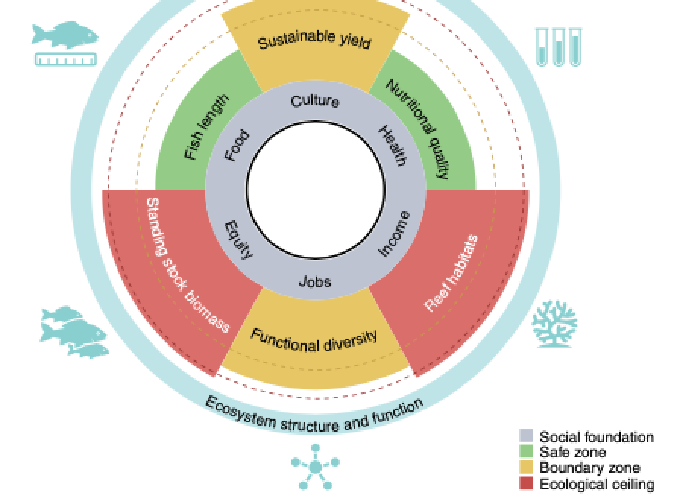
Safeguarding nutrients from coral reefs under climate change

Safeguarding nutrients from coral reefs under climate change
The sustainability of coral reef fisheries is jeopardized by complex and interacting socio-ecological stressors that undermine their contribution to food and nutrition security. Climate change has emerged as one of the key stressors threatening coral reefs and their fish-associated services. How fish nutrient concentrations respond to warming oceans remains unclear but these responses are probably affected by both direct (metabolism and trophodynamics) and indirect (habitat and species range shifts) effects. Climate-driven coral habitat loss can cause changes in fish abundance and biomass, revealing potential winners and losers among major fisheries targets that can be predicted using ecological indicators and biological traits. A critical next step is to extend research focused on the quantity of available food (fish biomass) to also consider its nutritional quality, which is relevant to progress in the fields of food security and malnutrition. Biological traits are robust predictors of fish nutrient content and thus potentially indicate how climate-driven changes are expected to impact nutrient availability within future food webs on coral reefs. Here, we outline future research priorities and an anticipatory framework towards sustainable reef fisheries contributing to nutrition-sensitive food systems in a warming ocean.